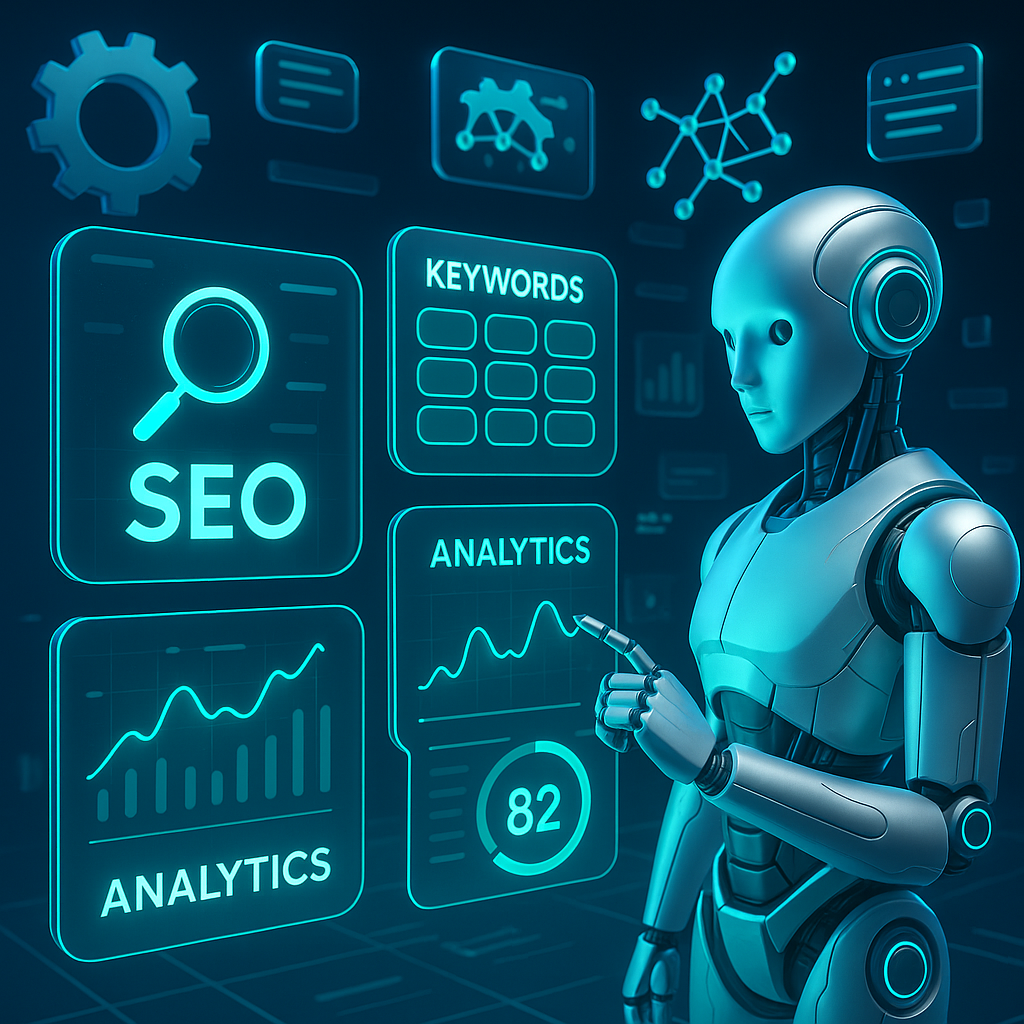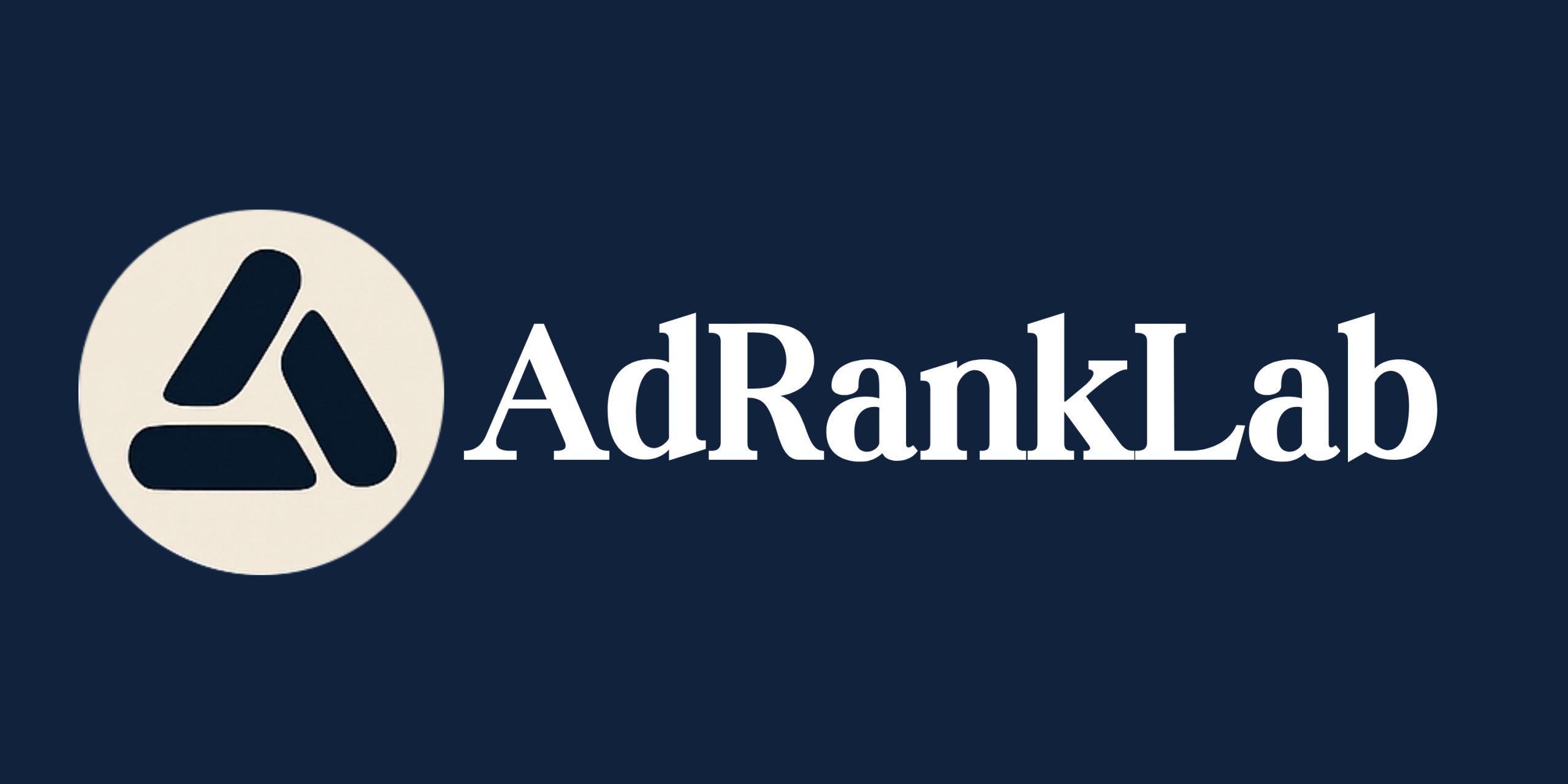Introduction: Why AI is the Future of SEO

AI for SEO (SEARCH ENGINE OPTIMIZATION) has undergone dramatic changes over the past decade. With evolving algorithms, shifting user intent, and vast amounts of content published daily, staying ahead in search rankings is more competitive than ever. As we enter 2025, Artificial Intelligence (AI) is not just a buzzword—it’s a necessity. AI tools are transforming how businesses approach SEO, enabling data-driven decisions, streamlined workflows, and hyper-personalized user experiences.
This blog explores how you can leverage AI tools to supercharge your SEO strategy in 2025—whether you’re a SaaS startup, eCommerce brand, marketing agency, or corporate enterprise.
AI and Keyword Research Automation
How AI is Changing Keyword Discovery
AI tools use natural language processing (NLP) and machine learning algorithms to identify keyword trends, long-tail opportunities, and content gaps at scale. Unlike traditional tools, AI can analyze user behavior, intent, and sentiment across multiple platforms in real time.
Real-World Example: SEMrush AI and Ahrefs Keywords Explorer now use AI to recommend keyword clusters based on SERP features, intent classification, and competition scores.
Data Insight: According to Moz, AI-driven keyword tools improve research efficiency by 67% compared to manual methods.
Pro Tips:
- Use Surfer SEO’s NLP-driven keyword recommendations.
- Cluster keywords by semantic relevance using MarketMuse.
- Use Exploding Topics to spot emerging keywords before they peak.
- Test LSI variants and local SEO keywords using SEMrush Local Pack Finder.
AI-Powered On-Page SEO Optimization
NLP for Content Relevance
AI tools analyze top-ranking pages and suggest on-page optimizations including meta tags, headings, readability, and semantic keywords.
Tools in Action:
Clearscope and Frase offer content scoring based on TF-IDF and topic modeling.
Research Insight:
A study by Backlinko found that pages with optimized headings and semantically enriched content had a 45% higher chance of ranking in the top 10.
On-Page Optimization Checklist:
- Optimize H1-H3 with AI-suggested terms
- Improve readability score to Flesch Grade 60+
- Add internal links contextually
- Use structured data (JSON-LD) for FAQs and reviews
- Optimize image alt texts with AI-generated captions
- Enable multilingual support using Weglot AI Translation
Analyzing Search Intent with AI
From Keywords to Intent
Modern SEO is intent-focused. AI can detect whether a query is informational, transactional, navigational, or commercial.
Real-World Case:
Google BERT update (and now MUM) leverages AI to better understand context. Tools like SEMrush Intent Analyzer replicate this for marketers.
Stat:
Per Statista, content that matches search intent improves dwell time by 39%.
Tip:
Use Surfer SEO‘s SERP Analyzer to check content against intent-based scoring models.
Improving Content Quality Using AI
Content Generation and Enhancement
AI tools not only create but also enhance content using GPT-4 models, ensuring coherence, tone, and topic depth.
Tools That Help:
- Jasper for scalable AI writing with templates
- Grammarly & Hemingway for tone and readability improvements
- ContentShake by SEMrush for topic-to-publish workflow
Data-Backed Insight:
According to Forbes, AI-generated content with human oversight outperforms purely human content by 30% in engagement metrics.
Bonus Insight:
AI can help generate title tags, meta descriptions, FAQs, and featured snippet copy for higher CTR.
Top 10 SEO Strategies That Work in 2025 (Backed by Data)
Predicting SEO Trends and User Behavior
Machine Learning for Trend Forecasting
Predictive analytics can forecast keyword surges, topic trends, and content decay before it affects rankings.
Google AI Blog Insight:
Machine learning models trained on billions of search logs can predict user preferences with high accuracy.
Example:
Exploding Topics uses AI to discover emerging keywords before they peak in Google Trends.
Implementation Tip:
Set up Google Trends API + AI dashboard to automate alerts when keywords spike in volume.
AI for Personalized Content at Scale
Hyper-Personalization Through Data
By analyzing user segments, behavior, and location, AI can tailor content dynamically to maximize conversions.
Applications:
- Product recommendations for eCommerce
- Geo-targeted landing pages for multi-national SaaS companies
- Custom email content for B2B outreach
Key Tools:
- Optimizely AI for A/B testing
- Mutiny for dynamic content personalization
- Segment + Jasper for persona-based AI content variations
Tip:
Connect AI with CRM tools to tailor content by funnel stage and customer lifetime value.
Enhancing Technical SEO with AI
Site Audits and Performance Fixes
AI-driven tools automate crawling, error detection, and mobile UX analysis.
Example:
Screaming Frog + GPT API identifies JavaScript rendering issues and auto-suggests schema fixes.
Tools:
- DeepCrawl for enterprise-level audits
- ContentKing for real-time SEO monitoring
Checklist:
- Fix Core Web Vitals using PageSpeed AI
- Implement schema markup with Merkle’s Schema Markup Generator
- Monitor crawl budget via JetOctopus
- Detect broken links using AI bots in Sitebulb
- Predict technical errors before deployment using BrightEdge Autopilot
Top AI SEO Tools in 2025
Must-Have Tools to Consider:
| Tool | Primary Use | AI Feature Highlight |
|---|---|---|
| Surfer SEO | Content optimization | NLP-driven keyword recommendations |
| Jasper | Content creation | GPT-4 content generation |
| MarketMuse | Topic modeling | Content cluster generation |
| Clearscope | On-page optimization | Content scoring & semantic analysis |
| SEMrush AI | All-in-one SEO suite | Keyword intent classification, trend detection |
| Frase | SERP analysis | Automated brief generation |
| DeepCrawl | Technical audits | AI issue prioritization |
| Exploding Topics | Trend prediction | Early keyword trend spotting |
| Mutiny | Personalization | AI-driven audience segmentation |
| ContentShake | Workflow automation | Topic to publish pipeline |
Step-by-Step Implementation Guide
- Audit Your Current SEO Stack – What’s manual and what can be automated?
- Define Goals – Traffic, lead generation, or brand visibility?
- Select Tools Based on Use Case – On-page? Technical? Keyword planning?
- Train Team on Tool Usage – Avoid automation errors.
- Integrate with Existing Workflows – CRM, CMS, Analytics.
- Monitor, Optimize, Repeat – SEO is iterative.
- Track KPIs Over Time – CTR, bounce rate, keyword position shifts.
- Evaluate ROI of Each Tool – Are paid tools delivering measurable growth?
- Maintain Human Touch – Edit and personalize AI-generated content.
- Stay Updated with AI Trends – Follow Moz, Google AI, and Search Engine Journal.
Pro Tips for AI-Driven SEO Success
- Use AI for ideation, not final content—always humanize it.
- Don’t chase volume blindly—focus on search intent.
- Combine multiple AI tools—no single platform covers all bases.
- Monitor algorithm updates regularly.
- Cross-check AI insights with user analytics.
- Implement E-E-A-T principles (Experience, Expertise, Authoritativeness, Trustworthiness).
- Use schema markup for AI-generated FAQs.
- A/B test AI content before publishing site-wide.
- Set ethical AI usage policies within your SEO team.
Frequently Asked Questions
Q: Can AI replace human SEO experts? A: No. AI augments human expertise. It enhances productivity but lacks creative and contextual judgment.
Q: Is AI-generated content penalized by Google? A: As per Google Search Central, content quality matters more than the method of creation. Ensure it’s helpful, relevant, and human-reviewed.
Q: How do I choose the right AI SEO tool? A: Match the tool’s capabilities with your goals—content generation, SERP analysis, or technical audits.
Q: Are AI tools safe for enterprise-level SEO? A: Yes, when vetted and integrated properly. Many top tools offer enterprise-level support and compliance.
Q: Can I use AI for local SEO? A: Absolutely. Use tools like BrightLocal AI and SEMrush Local for citations, reviews, and geo-keyword analysis.
Real-World Case Studies
Case Study 1: SaaS Startup Boosts Organic Leads by 143% Using Surfer SEO + Jasper
A San Francisco-based SaaS startup implemented a combination of Surfer SEO and Jasper to revamp their blog. By using NLP-driven content briefs and GPT-powered writing, they:
- Published 80+ optimized articles within 6 months
- Increased monthly organic traffic from 7,000 to 19,000
- Boosted organic leads by 143%
Case Study 2: eCommerce Brand Reduces Bounce Rate by 38% with Personalization
An apparel retailer used Mutiny to dynamically alter product pages based on visitor location and previous behavior:
- Bounce rate dropped from 62% to 38%
- Conversion rate rose by 21%
- Average time on page increased by 42 seconds
Case Study 3: Marketing Agency Scales Client Output by 400%
A mid-size digital marketing agency deployed ContentShake and Clearscope to automate keyword research and content briefs:
- Time-to-publish reduced by 75%
- 400% increase in monthly deliverables
- Enhanced content quality scores by 30% (measured via Clearscope)
AI SEO: Risks and Ethical Considerations
Risk 1: Overreliance on Automation
While AI excels at scaling, it may miss nuances like tone, cultural context, or empathy. Always review AI-generated content for alignment with brand voice.
Risk 2: Data Privacy Concerns
AI tools that process user behavior data must comply with regulations like GDPR and CCPA. Tools like Segment and Optimizely offer data governance features.
Risk 3: Inaccurate or Outdated Outputs
Models like GPT or Jasper can hallucinate or include outdated info. Cross-check against authoritative sources.
Risk 4: SEO Spam & Penalties
Low-quality AI-generated content at scale can lead to Google penalties. Use AI ethically and blend with human expertise.
Ethical Use Recommendations
- Disclose AI usage in content if required by compliance
- Ensure content adds value, avoids misinformation, and respects users’ privacy
- Implement approval workflows and editorial review
Table: Common Risks & Prevention
| Risk | Prevention Strategy |
|---|---|
| Over-automation | Human review and editing |
| Data privacy violations | Use compliant tools and anonymize data |
| Low content quality | Blend AI with editorial oversight |
| Google penalties | Focus on helpful, unique, user-intent-aligned content |
| Misinformation | Fact-check AI content manually |
Conclusion & Next Steps
AI tools are reshaping the SEO landscape—faster research, smarter optimizations, and tailored content experiences are the new norm. To compete in 2025, businesses must adopt an AI-first approach to SEO.
Ready to transform your SEO strategy with AI?
Let AdRankLab help you implement advanced, AI-powered SEO solutions customized for your business goals. From keyword automation to full-scale optimization, we deliver measurable results.
📩 Contact us today for a free AI SEO consultation!

